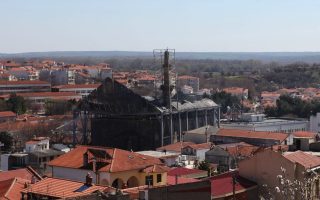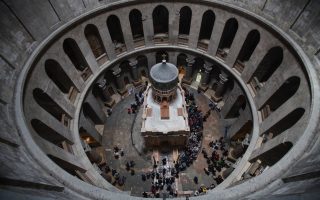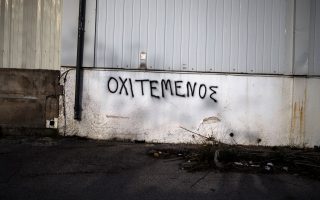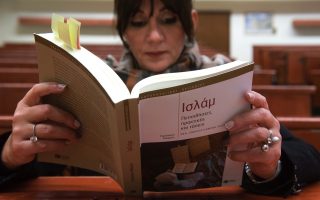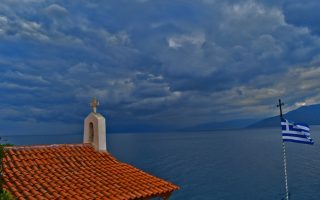Drama’s last Jew keeps the faith

Every year at Passover, Jacob Cohen leaves his home in Drama and heads to Thessaloniki to celebrate the holiday and attend services at a synagogue. Jacob is 75 years old and is not only the last living Jew in Drama, but in all of eastern Macedonia and Thrace.
Before the Second World War, there were flourishing Jewish communities numbering thousands of people in the region from Serres and Kavala and east to Evros. Most, however, perished in the Nazis’ Treblinka concentration camp in Poland, after being turned in by the Bulgarians who occupied East Macedonia and Thrace. Few survived. Their homes were looted and destroyed. The few who did return eventually passed away, and along with them a significant part of the region’s cultural and economic identity was lost.
In the town of Drama, Cohen is the last Jewish drop in an ocean of Orthodox Christians – without anyone to share his faith, without a place to pray and too far from his wife’s grave to light a candle for her.
“What is it like to be the only Jew in a Christian town and not even have a place of worship?” I ask him. “If you have a few good friends, you’re fine, but I’ve had the misfortune of losing two friends, Christians who were very close to me, in the past three years. I feel like a drop in the ocean. The community in Drama treats me well. When my wife was alive, everything was fine, our house was always open to visitors. Things got a lot harder, almost unbearable when I lost her 10 years ago, though.”
Cohen goes to weddings, funerals and even attends a Christian church, as there is no synagogue in Drama. “I like the Divine Liturgy. In church I follow along devoutly so as not to miss a word. It says the right things. In recent years, since my wife and close friends have passed away, I go to Christian graveyards every Saturday and light candles. I can’t do the same for my fellow Jews. Our graveyards have been destroyed. My wife is buried in Kavala, next to her father. Here I light candles for my friends.”
On Fridays, when Cohen feels the need to pray, he reads a Jewish prayer written in a notebook in Greek letters. He never learned Hebrew. On major holidays he goes to Thessaloniki to visit his two children.
“Until a few years ago, I used to go to Kavala, where there were a few Jews who were still alive. Indeed, there was a time when we couldn’t gather the 10 men needed for a Passover ceremony at the synagogue, so we would pay for people to come from Thessaloniki. Now there are no Jews left in Kavala. The same is the case in Xanthi, Serres, Komotini and Evros, so naturally there are no synagogues.”
Cohen was born in Kavala shortly before his mother fled by ship to Thessaloniki, and from there to Volos to her family. His grandfather was the chief rabbi there and soon realized that the Nazis were coming after the Jews there. After the Metropolitan Bishop Ioakeim refused to hand the Germans a list of the Jews in the town – telling them, “I am a Jew” – Cohen’s grandfather told his flock to hide and gathered together his family.
They fled to the village of Keramidi in the mountains, which was in rebel-held territory. “The people in the village treated us very well and we stayed there until the liberation,” says Cohen.
